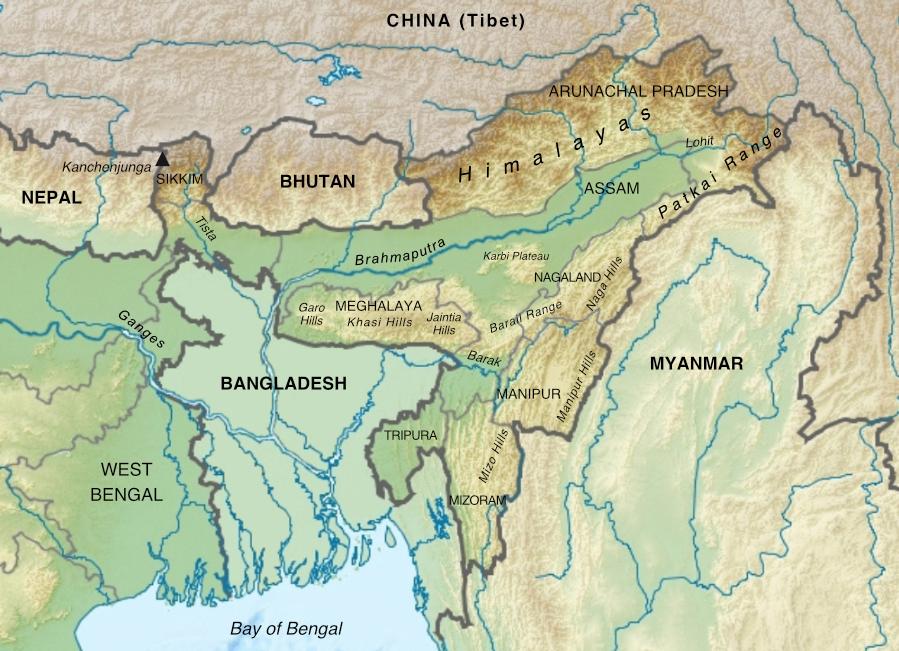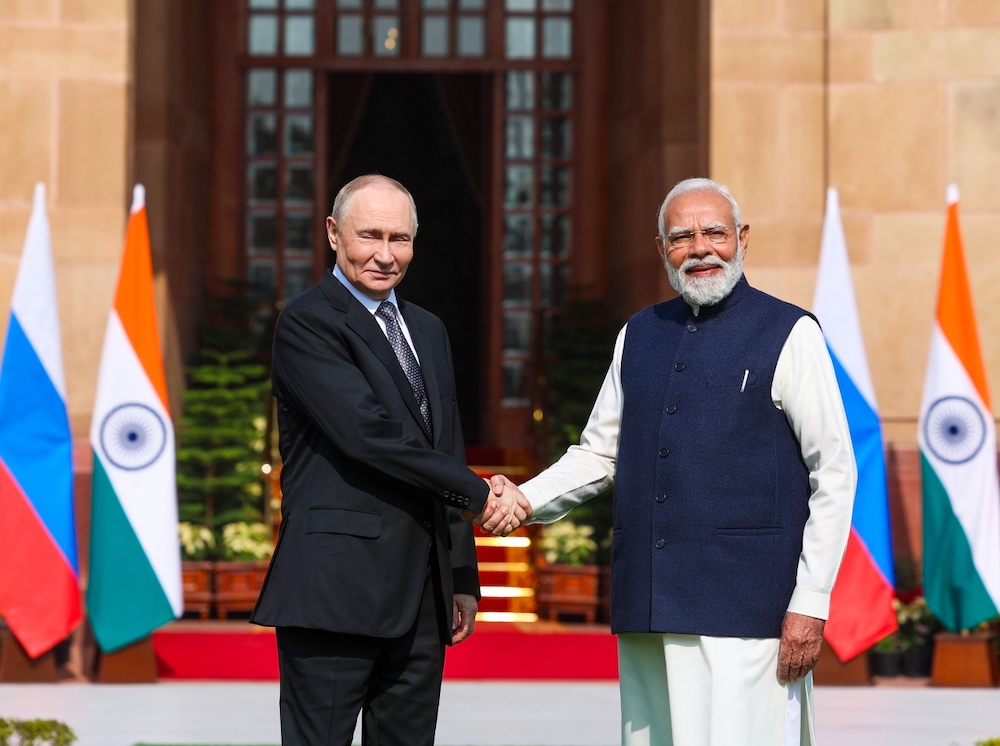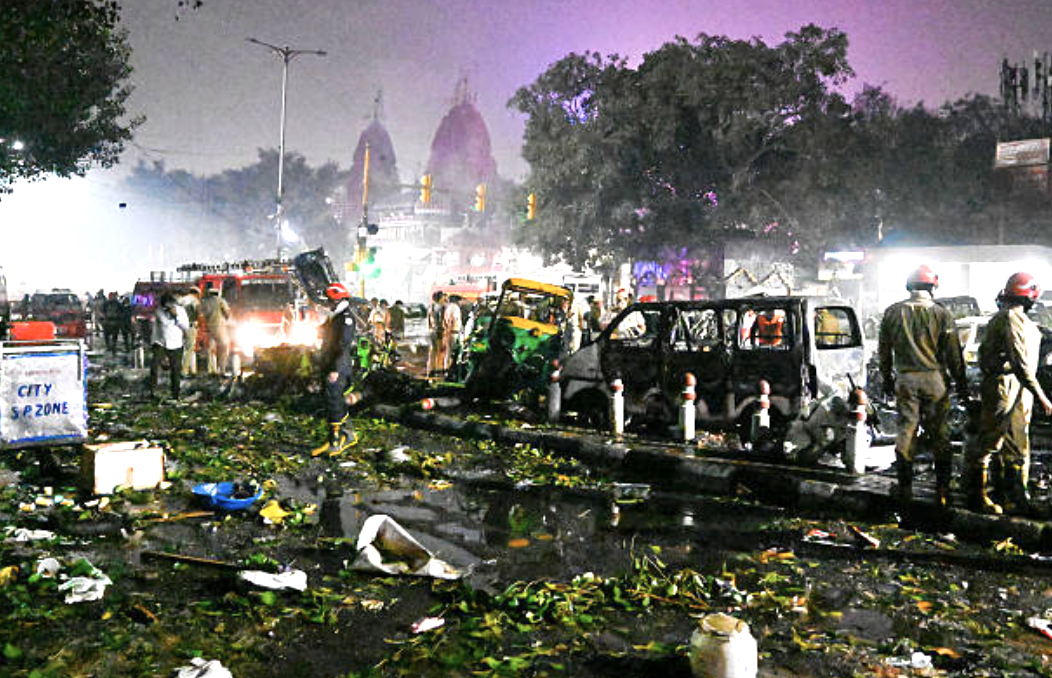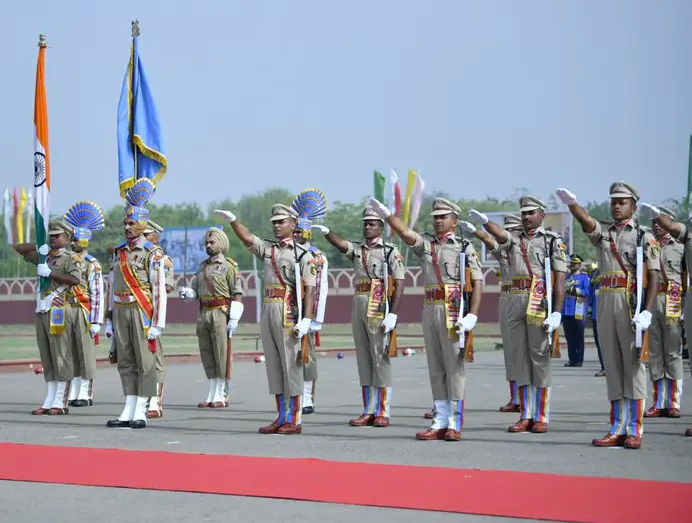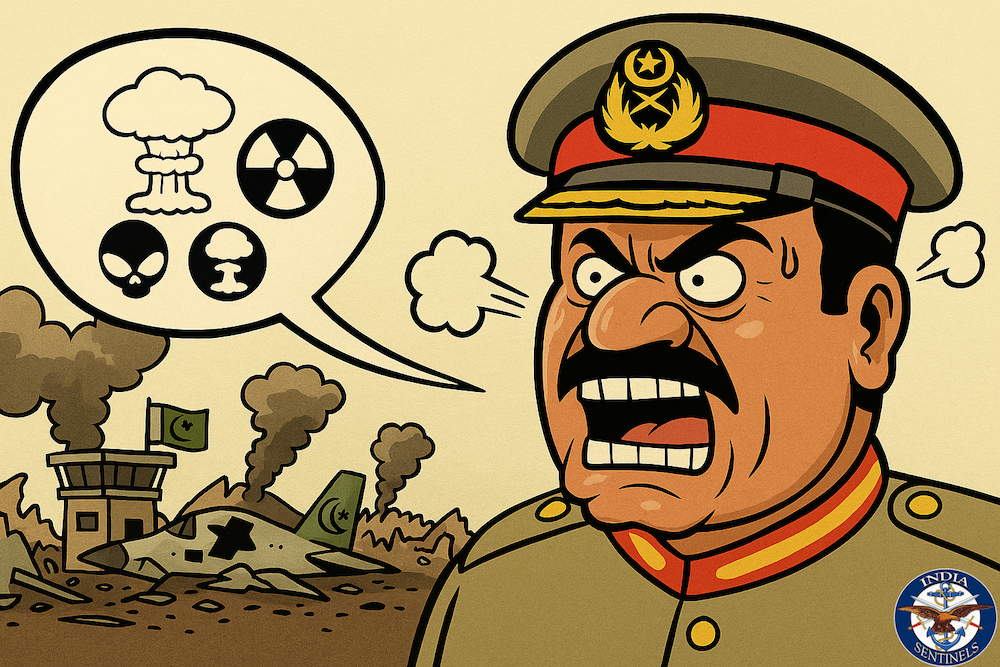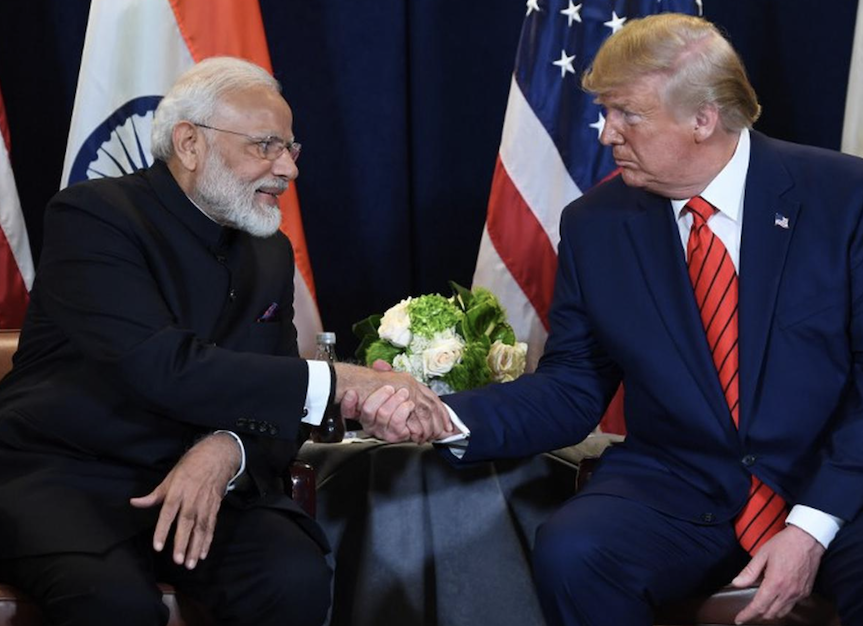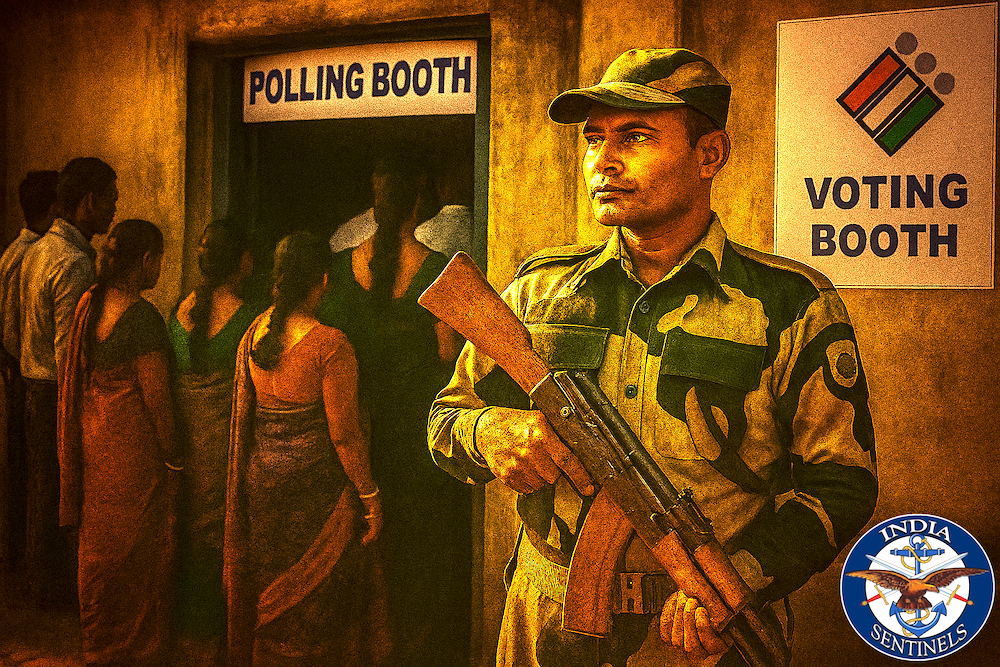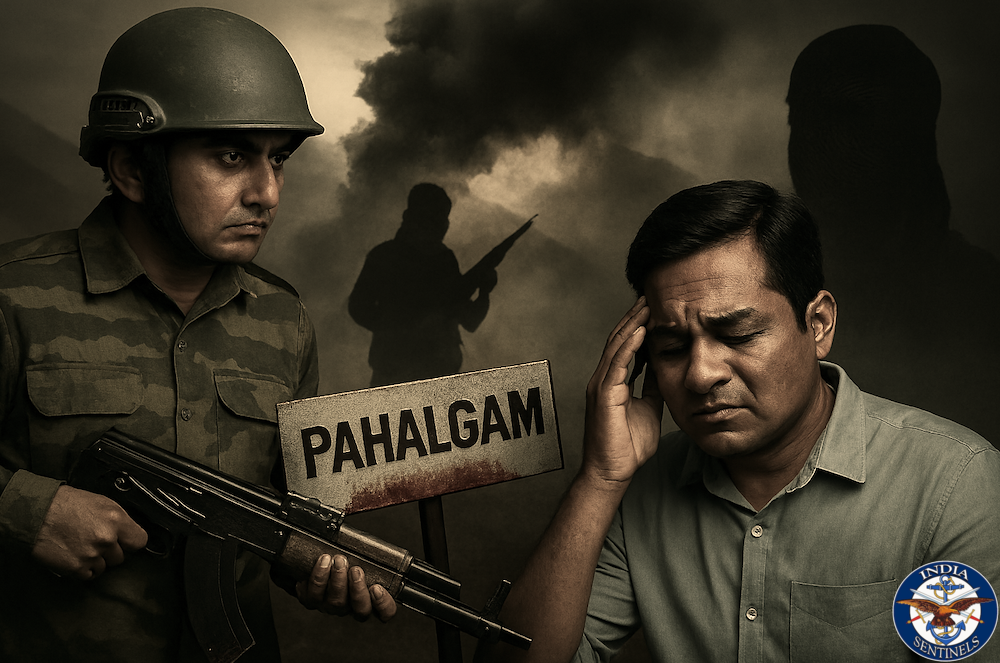 Illustration for representation. (© India Sentinels 2025–26)
Illustration for representation. (© India Sentinels 2025–26)
After days of parliamentary disruption, the nation finally witnessed a 16-hour marathon debate on Operation Sindoor. The discussion, marked by rare bipartisan unity, saw both opposition and ruling party members lauding the exceptional coordination displayed by India’s defence forces in achieving their politico-military objectives.
Every parliamentarian present acknowledged the comprehensive demonstration of India’s military capabilities – from precision strikes that degraded Pakistani infrastructure to the seamless integration of air, land, and naval assets. The confirmation by the air chief of downing at least six Pakistani aircraft, including one airborne warning and control system (Awacs), stands as testament to the total battlefield dominance achieved by our forces.
Yet, for all its duration and political theatre, the parliamentary debate failed to illuminate the critical questions that have haunted the nation since the shockingly tragic April 22 Pahalgam massacre. More troubling still, it offered no satisfactory explanation for how Operation Sindoor was concluded so abruptly.
Read also: Kashmir Book Ban – Why censorship can’t cure valley’s complex reality
Unanswered Questions
The opposition’s relentless questioning of the security failures that enabled the Pahalgam massacre struck at the heart of India’s intelligence apparatus. How, they demanded, could militants infiltrate from the line of control (LoC) and execute such a devastating attack so deep inside Kashmir without intelligence agencies detecting even the faintest signal of their movement or intent?
The treasury benches, while rightfully highlighting the military’s success in retaliating against terrorist infrastructure in Pakistan, conspicuously avoided addressing these fundamental intelligence failures. Instead, the prime minister and his colleagues resorted to familiar political rhetoric, invoking alleged mistakes of previous governments – particularly targeting India’s first prime minister, Jawaharlal Nehru – to explain the current situation in Jammu & Kashmir.
This deflection strategy, while politically convenient, does little to address the systemic vulnerabilities that enabled the tragedy.
Read also: Akhand Bharat and ‘retaking’ Pakistan-occupied Kashmir
A Legacy of Incompetence
Opposition members exposed a particularly damaging claim by the government that the popular Baisaran valley tourist spot had been opened by tour operators without the state government’s knowledge. However, ground reports consistently indicate that this scenic destination remained operational throughout the year, making the government’s claim appear either disingenuous or reflective of shocking administrative ignorance.
The treasury benches offered no credible response to this contradiction, further undermining their credibility on security matters.
The Pahalgam attack represents not an isolated incident but part of a disturbing pattern of intelligence failures. Where were India’s much-vaunted technical intelligence capabilities? Why did sophisticated electronic surveillance systems fail to detect any digital footprints of the planning phase?
More critically, what happened to human intelligence resources in the region? Had intelligence agencies been properly deployed and focused on their core mandate, they would certainly have noticed the sudden surge in demand for satellite imagery of Pahalgam and surrounding areas. Such intelligence, properly analysed and disseminated, could have prevented the tragedy entirely.
The postponement of the prime minister’s programme to inaugurate the Vande Bharat train from Udhampur, just days before the Pahalgam attack, adds another layer of complexity. This cancellation was reportedly based on intelligence inputs warning of major militant activity in Jammu & Kashmir.
This raises a troubling possibility: did intelligence agencies misinterpret these inputs as threats specifically targeting the prime minister or railway infrastructure, rather than recognizing the broader threat to the dramatically increased tourist population in the Kashmir valley?
The Pahalgam tragedy joins an inglorious list of intelligence failures, including the Pulwama bombing and Udhampur attack. Each incident reflects poorly on the capabilities and competence of India’s intelligence community, demanding urgent introspection and comprehensive course correction.
These repeated failures suggest systemic problems rather than isolated lapses, pointing to issues in intelligence gathering, analysis, dissemination, or coordination between agencies.
Read also: Modernization and reforming our border-guarding forces
Abdication of Responsibility
The statement by the lieutenant governor of Jammu & Kashmir, accepting full responsibility for the Pahalgam tragedy just days before the parliamentary session, appeared designed to shield senior central government officials from accountability. However, this belated acceptance of responsibility – coming nearly three months after the incident – offers no comfort to the grieving families.
The reported claim that the administration “did not apprehend any threat to tourists” reveals shocking incompetence and naivety among those responsible for the Union territory’s security apparatus. Such complacency is inexcusable in a region where militants constantly seek spectacular attacks to create maximum panic and terror.
This statement from someone who has headed the administration for nearly five years demonstrates a fundamental lack of understanding of both ground realities and militant operational methodologies. It suggests dangerous complacency that may have set in following the successful conduct of elections the previous year.
Read also: Efficiency of CAPFs suffering from ‘glass ceiling’ effect
Cost of Complacency
The consequences of these intelligence and administrative failures extend far beyond the immediate tragedy. The four-day conflict that followed claimed approximately twenty additional innocent lives in Rajouri, Poonch, and Uri – areas close to the LoC. Military casualties and economic damage running into billions of dollars in destroyed infrastructure and defence equipment compound the human cost.
In a particularly troubling irony, the same government that failed to provide adequate security for tourists reportedly deployed substantial security personnel to protect celebrations for a member of Parliament’s 25th wedding anniversary.
Perhaps most frightening is contemplating what might have happened if this brief but intense war between two nuclear-armed neighbours had escalated beyond the exchange of kinetic strikes. The four-day conflict alone demonstrated how quickly regional tensions can spiral into broader military confrontation.
While the entire nation rightly stood united behind our defence forces during this crisis, the decision-makers must engage in serious introspection. Corrective measures are urgently needed to prevent future tragedies like Pahalgam and Pulwama, ensuring that Jammu & Kashmir can develop economically, and its people can aspire to a more secure and prosperous future.
Read also: Story of BSF’s key role, valour and sacrifices in 1971 India-Pakistan war
The Way Forward
The parliamentary debate, despite its length and political posturing, missed an opportunity to address fundamental questions about India’s security architecture. Moving forward, several critical areas demand immediate attention:
Intelligence agencies must undergo comprehensive reform, including better coordination mechanisms, enhanced human intelligence capabilities, and improved threat assessment procedures. The pattern of repeated failures cannot be attributed to chance or isolated incompetence.
Administrative accountability in sensitive regions like Jammu & Kashmir must be strengthened, with clear chains of responsibility that cannot be easily deflected during crises. The Union territory’s unique security challenges require leadership that combines local understanding with strategic vision.
Most importantly, the political establishment must resist the temptation to use military success as a shield against legitimate questions about intelligence and administrative failures. The bravery and competence of India’s armed forces should not become a convenient excuse for civilian incompetence.
Only through honest acknowledgement of these systemic failures and comprehensive reform can India hope to prevent future tragedies while maintaining the hard-won stability that enables both development and democracy in its most challenging regions.
Disclaimer: The views expressed in the article are the author’s own and don’t necessarily reflect the views of India Sentinels.
Follow us on social media for quick updates, new photos, videos, and more.
X: https://twitter.com/indiasentinels
Facebook: https://facebook.com/indiasentinels
Instagram: https://instagram.com/indiasentinels
YouTube: https://youtube.com/indiasentinels
© India Sentinels 2025-26


